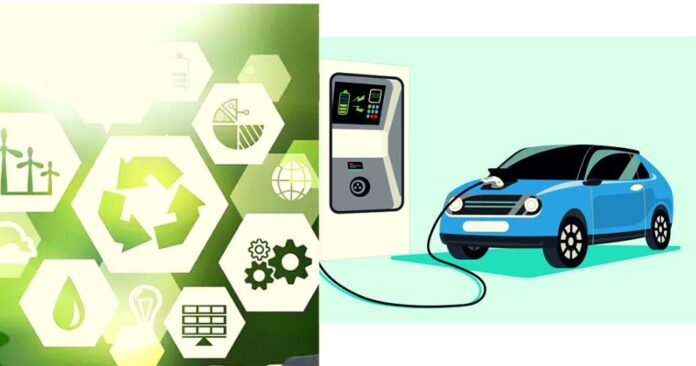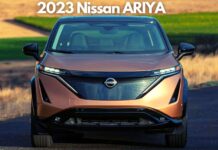When electric cars will take over the future automobility of sustainability and be more environmentally friendly?
The automobile industry is completely evolving and here we are in the middle of the most prominent revolution in motoring which is likely to happen much more quickly than you imagine. The automakers are shifting their production towards future electric cars either just regular or premium cars most of the car brands have targeted to become all-electric car manufacturers by 2035. The fact many governments around the world are setting targets to ban the sale of gasoline-powered vehicles gives momentum to the revolutionary process.
The electric cars manufactured now or the upcoming concept showcased are more futuristic in design and passenger-oriented where vehicles are interactive with the driver and occupants relatively providing great driving experiences. The market for electric vehicles is growing rapidly as EVs are getting cheaper while all automakers are producing them at accessibly low prices. Electric cars are fuel-efficient, safer, and environmentally friendly, which has led a lot of people to choose electric cars.
Automakers worldwide will spend more than a half trillion dollars to develop new electric cars and passenger trucks, and also on battery manufacturing, through 2030
ACCORDING TO THE LATEST REPORT BY LONDON-BASED SUSTAINABILITY CONSULTANCY FIRM ERM FOR THE ENVIRONMENTAL DEFENSE FUND (EDF).

Will gas cars ever go away?
Gasoline engines now represent 99% of all automobile engines today in the world. The modern internal combustion engine is advanced and produces fewer emissions as compared to older gas cars. The gas cars which are already driving on the road with a new generation of technology cannot be replaced as of now. The evolution of future technology is uncertain and modern inventions may totally disappear with the upcoming new ideas and solutions for humankind.
Sales have been steadily growing as more manufacturers bring out new electric vehicle models. However, this does not mean that gas cars will eventually go away entirely. The rapid expansion of the EV market will make it difficult for consumers to keep up with all the changes. In the 19th century, the invention of the modern gasoline-powered automobile was one of the great milestones in the history of personal transport. Gasoline-powered cars are on the road to this day, though they’ve evolved quite a bit since their humble beginnings.
Will gas cars be illegal?
The increasing presence of electric vehicles in today’s automobile industry raises the question of the continued existence of gas-powered vehicles. With a growing environmentally conscious consumer base, the competition between zero-emission vehicles, diesel vehicles, and other combustion vehicles will have a significant impact on the current traditional fossil fuel-based automobile industry. This may be even more true with self-driving cars.
Perhaps the response isn’t basic and depends on the progress of current worldwide and administrative environmental change drives. Gas motors are liable for delivering vicious contaminations, for example, carbon monoxide prompting further disintegration of our air quality.
In any case, gas and diesel vehicles keep on ruling the worldwide auto market, especially beyond North America. In any case, a couple of markers highlight a potential takeover. The developing fame, deal, and creation of electric and a half and half vehicles might deliver gas vehicles potentially obsolete in the next 10 to 15 years. This projection is additionally reflected in worldwide administrative endeavors to decrease and wipe out fuel-controlled vehicles by 2030. Rather, it will develop and contract this doesn’t mean that the internal combustion vehicle industry will be totally eradicated.

Can you still drive gas cars after 2035?
Well, most of the car manufacturers are already transforming into EVs the gas cars will be outnumbered and very few can be seen on the road in the future. The gas prices will be so high that people go for alternative energy sources and strict government rules for combustion engine vehicles restrict furthermore to driving gas cars after 2035. We can imagine the increasing number of electric vehicle sales increasing rapidly, with state-of-the-art technology, battery replacement cost, and fast charging availability many people will be attracted to EV drive. A gasoline motor car phaseout can also be called an internal combustion engine will be banned and replaced by electric cars.
Do gas cars have a future?
No. The future of gas cars is down, with many international governments planning to phase them out entirely. Despite this, not all governments and countries have the ability to switch completely, so the future of gas cars is more transformative and on a more sustainable trajectory than on a path to complete obsolescence.
To keep up with the times, businesses have been incorporating electric vehicles and hybrid models into their products. Despite this, electric vehicle technologies are not as common or as feasible in many parts of the world. Professionals will need to adapt and learn more technology and electrical skills to keep up with the changing industry.
What will happen to gas-powered cars in the future?
Whether it’s Norway’s ambitious goal of a 100 percent ban on gas car sales by 2025 or the United States plan to transform two-thirds of new vehicles into electric cars, many countries have pledged their efforts toward sustainability. This global movement toward sustainability acts as a prominent reason gas cars could become obsolete in the near future. Gas-powered cars are also converted into electric vehicles which can significantly help to use recycled cars instead of piling up in the junkyard.
Electric Vehicles (EVs) are a lot greener than their gas vehicle partners; they don’t create CO2, NOx, or SOx gases, and that implies they don’t add to environmental change or intensify benzene which can cause diseases like cancer. Driving an electric vehicle is basically much better for the climate and not on the grounds that an electric vehicle consumes no fuel.

Will all cars be electric by 2035?
If you assume that all the cars can be electric by 2035 then it’s quite a challenge to eliminate older gas cars so fast. Almost 1.2 billion passenger vehicles 99% of the world’s transportation on a road that relies on gas fuel and has a high road presence take time to replace. But what makes the end of the internal combustion engine inevitable is a technological revolution that tends to happen very quickly. Electric cars are getting more advanced features and battery technology is the most important factor for EVs to obtain 100% zero-emission in near future.
A number of problems need to be resolved before electric cars (EVs) are adopted widely. Research and development (R&D) on batteries must continue since they can and must be improved. Due to the high cost of batteries on the market, electric automobiles are significantly more expensive than gas-powered vehicles. Owners of electric vehicles must make more frequent stops at charging facilities than at gas stations. As opposed to a full tank, they have a shorter range per battery charge (124 to 304 miles) (300 miles). The typical annual mileage for Americans is 13,500 miles.

What year will electric cars be mandatory?
In most countries, authorities delivered a recommendation that expresses generally new vehicles offered to be zero-discharge vehicles inside a particular year before 2035. States from around the world intend to end internal combustion vehicle buys by 2035 and marked a nonbinding objective that half of the new vehicle deals be electric by 2030. While many spots across the globe are executing strategies to restrict the development of vehicles that depend on fuel, whether there are plans to make a full switchover to electric-just vehicles relies upon where you reside.
Apparently, officials across the world are pushing for EV reception as a method for combatting environmental change. A couple of instances of timetables are as per the following the U.S. government intends to end internal combustion vehicle buys by 2035 and marked a nonbinding objective that half of new US vehicle deals be electric by 2030. By 2026, US automakers will be expected to raise the corporate typical efficiency of their armadas to 49 mpg. Legislators in Washington passed a regulation taking on an objective for the state to end the offer of new internal combustion vehicles by 2030. The European Union has proposed a viable prohibition on the offer of new internal combustion vehicles by 2035.
How Soon Will electric cars take over?
The best way to increase electric cars for driving is by providing extra benefits likewise tax reduction, minimal insurance coverage charge, and free fast charging options for certain introductory miles. Automakers are ramping up EV production with new models expected over the next few years as the low purchase price, high driving range, and sufficient charging infrastructure the growth of EVs will be sooner than expected.

What Year Will there be only electric cars?
With the increasing popularity and the rising sales of electric vehicles after the year 2040, there will be only electric cars in the world. The EVs will get more sophisticated technology, an advanced system for driving the vehicle without any difficulty, and also the perfect interactive AI system between driver and vehicle to achieve riding comfort.
Will electric cars take over in the future?
Electric cars are often faster, have an insane amount of power, and are also one of the safest cars on the road. Newer EVs offer a more than decent range, increasing in speed as technology advances over time, and can be recharged relatively quickly with DC chargers. Assuming to be every electric vehicle driving on the road, implies the framework for re-energizing should be widespread and adequate in all areas. The existence cycle effect of assembling batteries is in many cases more terrible than assembling customary gas-powered motors because of the quantity of ozone-depleting substances delivered during their creation interaction.





